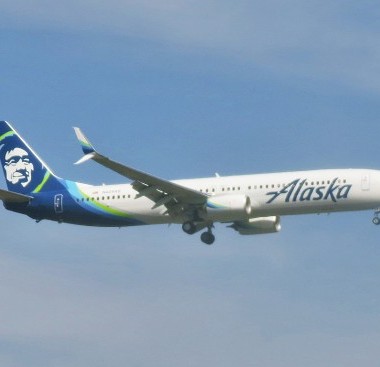Lufthansa, Wizz slide on cost pressures, capacity plan pullbacks
Deutsche Lufthansa AG and Wizz Air Holdings Plc slid after reporting robust quarterly results, as investors focused in on capacity constraints and cost pressures that will prevent the carriers from taking full advantage of demand for air travel.
Lufthansa, Europe’s biggest airline group, said Thursday that cost inflation is being driven by a rise in air traffic control and airport charges, as well as higher expenses tied to maintenance and spare parts. The German company said 13 of its aircraft will need to be idled in the coming months over issues tied to Pratt & Whitney geared turbofan engines.
At Wizz, the engine defects disclosed by Pratt last week are also cutting into capacity growth, though like Lufthansa the Hungarian budget carrier is also pulling back on flights intentionally to keep ticket prices high.
“Even if we have to absorb more costs in the system, capacity scarcity in an off peak period results in a yield opportunity,” Chief Executive Officer Jozsef Varadi said on a conference call, referring to a common airline-industry measure of ticket-price strength.
Lufthansa shares fell as much as 7.3% in Frankfurt, while Wizz slumped as much as 7.5%. It was the worst intraday performance for both companies since March.
The issues, while varying slightly by carrier, are similar to those disclosed at Air France-KLM last week. Shares of the Franco-Dutch carrier slid after paring back its outlook for capacity because of aircraft shortages tied to maintenance delays and parts shortages, and saying costs were hit by higher labor, fuel and materials costs.
Unit costs at Lufthansa rose 7% in the second quarter, partly because of one-time expenses tied to expanding flight operations and stabilize operations, the company said. It expects full-year capacity to be around 85% of 2019 levels, at the low end of the 85-90% range in its previous guidance.
Still, healthy summer demand helped the airline to almost triple adjusted earnings before interest and taxes to €1.1 billion ($1.2 billion) in the second quarter, in line with analysts’ estimates. Revenue was up 17% from a year earlier.
Third-quarter earnings will come in above the pre-pandemic level of €1.3 billion, according to a statement, while full-year earnings will surpass €2.6 billion.
Engine Problems
Air-traffic control issues and engine problems were the two main challenges for Wizz moving forward, CEO Varadi said.
The woes with geared turbofan units supplied by Pratt, a division of RTX Corp., were a bigger worry because the scale of the issue was unclear, with six of its Airbus SE A320-series planes initially due to be grounded, Varadi said.
Wizz reduced its first half capacity growth to 25% compared with an earlier forecast of 30%, according to a statement.
The airline said last week that 12 of its GTF engines required early removal for inspections tied to the Pratt issue, which involves the powder metal used in some parts of about 1,200 engines. Wizz said there were no signs the engine problems could negatively impact profitability.
Demand Strength
Despite the travel boom, some analysts have expressed concern over demand dropping in the winter against the backdrop of inflation and the cost-of-living crisis. Wizz also has to compete with other airlines to offer price-conscious consumers the best value for money on flights amid a cost-of-living crisis, Ruth Griffin, leisure partner at Gowling WLG, said in a statement.
Ryanair said it might reduce ticket prices toward the end of the year to ensure seats are filled, putting pressure on other carriers.
Lufthansa expects demand for flying to remain robust for the remainder of the year, with bookings for the late summer and early winter seasons at 90% of pre-pandemic levels.
The German airline aims to get as close to an 8% earnings margin it’s targeting for 2024 by the end of this year, Chief Financial Officer Remco Steenbergen said in the statement. That would help the company pay down debt incurred during the coronavirus pandemic.
Similar Stories

Lufthansa Cargo and Maersk launch cooperation to support decarbonization of airfreight
View ArticlePort Authority of New York and New Jersey airports see spookily spectacular surge in October
Port of New York and New Jersey surpasses 700,000 TEUs for eighth consecutive month
View Article
airBaltic Cargo partners with cargo.one to accelerate and enhance its digital sales
View Article
Chapman Freeborn agrees partnership with Portuguese multimodal logistics specialist
View Article
Cathay is ready for the commissioning of the three-runway system at Hong Kong International Airport
View ArticleUnited Airlines Holdings Inc. upgraded To ‘BB’; outlook stable
• United Airlines Holdings Inc. is on track to generate credit measures in line with our previous upside rating threshold this year, and we expect improvement in 2025. • The…
View ArticleGet the most up-to-date trending news!
SubscribeIndustry updates and weekly newsletter direct to your inbox!





